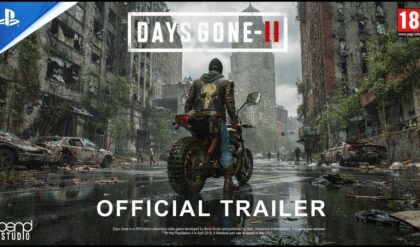Ubisoft’s Game Ownership Stance Sparks Legal Firestorm: A Wake-Up Call for AAA Gaming
The gaming industry, particularly the AAA sector, has long been a battleground for debates over consumer rights, digital ownership, and corporate overreach. In April 2025, Ubisoft, a titan behind franchises like Assassin’s Creed and Far Cry, found itself at the center of a firestorm after defending its stance in a lawsuit over The Crew (2014), asserting that players don’t own their games but merely purchase a “limited license” to access them. This claim, coupled with a recent legal setback described by fans on X as “The Law just nuking” Ubisoft, has ignited outrage across the gaming community. As players rally against what they see as an assault on digital ownership, this controversy raises critical questions about the future of gaming in an era of live-service models, digital storefronts, and corporate control. Let’s dive into the legal drama, Ubisoft’s embattled stance, and why this could be a turning point for the AAA industry.
The Spark: The Crew Lawsuit and Ubisoft’s Bold Defense
The controversy stems from a class-action lawsuit filed against Ubisoft in California in 2023, following the shutdown of The Crew’s servers in March 2024. The Crew, a 2014 open-world racing game, relied on online servers for core gameplay, rendering it unplayable once Ubisoft pulled the plug. Players, who had purchased the game for $60 or more, were left with a digital brick, unable to access single-player modes or content they believed they owned. The lawsuit, led by plaintiffs like Alexander Muse, accused Ubisoft of deceptive practices, arguing that the company failed to disclose that The Crew could become inaccessible due to server shutdowns, violating consumer protection laws.
Ubisoft’s defense, filed in early 2025, doubled down on a controversial industry stance: purchasing a game doesn’t grant “unfettered ownership rights” but only a “limited license to access the game.” In court documents, Ubisoft claimed players were informed of this through end-user license agreements (EULAs), which state that games are licensed, not sold, and that access depends on active servers. The company argued that this model is standard across the industry, citing precedents like Sony’s PlayStation 5 terms, which similarly emphasize licensing over ownership. PC Gamer reported on April 10, 2025, that Ubisoft sought to dismiss the case, asserting that players had no legal claim to perpetual access.
However, the court rejected Ubisoft’s motion to dismiss in a ruling on April 8, 2025, allowing the lawsuit to proceed. X posts, like one from @C36985048Caal, celebrated the decision as “The Law just nuked” Ubisoft, accusing the company of “pathetic” ignorance for undermining consumer rights. The ruling, while not a final verdict, marked a significant blow to Ubisoft’s defense, signaling that courts may be willing to scrutinize the industry’s licensing practices. IGN noted on April 11, 2025, that the decision could set a precedent for how digital ownership is treated in gaming, potentially impacting other AAA publishers like EA, Activision, and Sony.
The Bigger Picture: AAA Gaming’s Ownership Crisis
Ubisoft’s stance reflects a broader trend in the AAA gaming industry, where digital distribution and live-service models have eroded traditional notions of ownership. During the PlayStation 2 era, as Forbes noted, games were physical products, bought and owned outright, with budgets modest enough to foster a direct relationship between publishers and players. The shift to AAA blockbusters in the Xbox 360 era, with budgets ballooning to $200 million or more, introduced digital storefronts, microtransactions, and always-online requirements, prioritizing corporate control over consumer rights.
Today, many AAA titles, from Destiny 2 to Call of Duty, operate under similar licensing models. EULAs, often buried in fine print, grant publishers the right to modify, restrict, or terminate access at any time. The Crew’s shutdown was not an isolated incident: Forbes highlighted cases like Knockout City (2023) and Anthem (2021), where server closures rendered purchased games unplayable. X users, such as @WallStreetApes, have decried this as part of a broader “you will own nothing” trend, pointing to Sony’s 2024 PlayStation terms, which mandate waiving lawsuit rights over licensing disputes.
The AAA industry’s reliance on live-service games has exacerbated the issue. Titles like The Crew require constant server support, making them vulnerable to obsolescence. PC Gamer reported that the industry’s push for cutting-edge graphics and massive online ecosystems has driven up costs, leading to layoffs and studio closures, with 1 in 10 game developers reportedly laid off in 2024. Meanwhile, players bear the cost of impermanent products, with no guarantee of long-term access. Forbes argued that the industry’s “disconnect” with gamers stems from this shift, as bloated budgets prioritize shareholder value over player satisfaction.
The Legal “Nuke”: Why the Ruling Matters
The court’s decision to let the The Crew lawsuit proceed is a rare challenge to the AAA industry’s licensing model. Legal experts, cited by IGN, suggest the case could test whether EULAs are enforceable when they fail to clearly disclose the risk of server shutdowns. The plaintiffs argue that Ubisoft’s marketing presented The Crew as a traditional purchase, not a temporary service, misleading consumers. If the court sides with the plaintiffs, it could force publishers to offer clearer warnings, refund policies, or even offline modes to preserve access—a move that could reshape AAA game design.
The ruling also taps into growing consumer frustration. X posts from users like @AdmiralCherry and @iampowlly on April 12, 2025, linked to YouTube videos amplifying the controversy, framing Ubisoft’s stance as a betrayal of gamers who “bought” their games in good faith. The backlash echoes broader industry discontent, with Reddit’s r/gaming rallying around “stop buying always-online games” campaigns. In Japan, where consumer protection laws are stricter, companies like Square Enix have faced similar pressure, adopting policies to combat harassment and protect workers but also signaling responsiveness to public outcry.
Globally, legal frameworks are evolving. In India, the Supreme Court stayed GST tax notices against online gaming companies in January 2025, addressing concerns that excessive taxation could bankrupt the industry. While unrelated to ownership, the case shows courts’ willingness to intervene when corporate practices threaten consumers or industries. In the U.S., the The Crew lawsuit could inspire similar scrutiny, especially as digital ownership debates gain traction in other sectors, like streaming and software. The Hollywood Reporter noted the Writers Guild’s 2024 push for studios to sue AI companies over IP theft, reflecting a parallel fight for creator and consumer rights.
Ubisoft’s Response and Industry Fallout
Ubisoft has remained defiant, with a spokesperson telling IGN that its EULA is “standard industry practice” and that players were “fully informed” of The Crew’s online requirements. However, the company’s reputation has taken a hit. PC Gamer reported declining stock prices and fan boycotts, with X users like @C36985048Caal calling Ubisoft “pathetic” for “doubling down” on its stance. The company’s recent struggles, including Skull and Bones’ lackluster 2024 launch and Assassin’s Creed Shadows delays, have compounded perceptions of mismanagement.
The broader AAA industry is watching closely. Forbes warned that the lawsuit’s outcome could force publishers to rethink live-service models, potentially leading to smaller, more sustainable budgets akin to the PlayStation 2 era. Netflix’s failed AAA studio, shuttered in October 2024 despite hiring talent from Halo and God of War, underscores the risks of high-stakes ventures. Meanwhile, Japanese AAA studios like Capcom and Square Enix, buoyed by legal protections and strong financials, are outperforming Western counterparts, suggesting a more balanced approach to talent retention and consumer trust.
What’s Next for Gamers and the Industry?
The The Crew lawsuit is a flashpoint in a larger battle over digital ownership. If the plaintiffs prevail, Ubisoft could face financial penalties and be forced to offer refunds or preserve access to delisted games. A broader ruling could mandate offline modes or permanent access for single-player content, reshaping how AAA games are designed and sold. GameRant speculated that such changes could reduce reliance on always-online models, benefiting players but challenging publishers’ revenue streams.
For gamers, the controversy is a call to action. Reddit threads and X campaigns, like those from @pcgamer, urge players to support indie and AA studios, which often offer offline-friendly games with lower budgets. Titles like Hades II and Balatro, praised by GameSpot for their accessibility, show that quality doesn’t require AAA excess. Consumer advocacy groups, cited by The Verge, are pushing for legislation to clarify digital ownership rights, drawing parallels to EU laws mandating refund policies.
Ubisoft, meanwhile, faces a precarious future. Assassin’s Creed Shadows, set for 2025, is under scrutiny for cultural inaccuracies, and the The Crew backlash could further erode fan trust. The industry as a whole must grapple with a shifting landscape, where players demand transparency and permanence. PC Gamer’s report on Japanese studios’ success suggests that retaining talent and respecting consumers can yield dividends, a lesson Western AAA giants like Ubisoft may need to learn.
A Turning Point for AAA Gaming?
The The Crew lawsuit and Ubisoft’s ownership stance have exposed deep flaws in the AAA model, from unsustainable budgets to eroding consumer rights. The court’s refusal to dismiss the case, hailed by fans as a legal “nuke,” signals that the industry’s licensing practices are not untouchable. As gamers rally on X and beyond, demanding accountability, this controversy could spark a reckoning for AAA publishers. Whether it leads to fairer policies or entrenched corporate defiance, one thing is clear: the fight for digital ownership is just beginning, and the outcome will shape the future of gaming for years to come.





